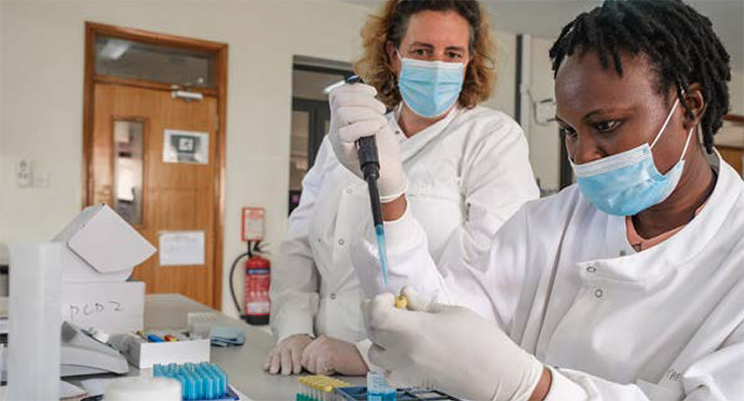Strengthening epidemiology training in French-speaking Africa: insights from the PREP-EPID project

The PREP-EPID project aims to develop a consortium of institutions that bring together diverse experiences and expertise to bolster the training of professionals in epidemiology and biostatistics across French-speaking African countries. The project is part of the EDCTP and the Africa CDC initiative to support consortia providing Master’s-level training in these critical fields. To date, numerous activities have been executed to disseminate the project’s achievements among key stakeholders.
On 21 June 2024, the PREP-EPID consortium held a workshop in Ouagadougou, Burkina Faso. The gathering spotlighted the project’s accomplishments and explored future avenues for epidemiology training considering the lessons learnt in the project. The PREP-EPID project welcomed 15 fellows in October 2021 from 11 countries in Francophone Africa to pursue a Master’s in Epidemiology and Biostatistics at the African Institute of Public Health. They benefited from the regular training curriculum at the Institute with reinforced infectious disease epidemiology, focusing on surveillance, outbreak investigation, and response strategies. By October 2023, 14 of the 15 fellows had successfully graduated.
During the workshop, the research findings from the fellows were shared with participants, including representatives from Ministries of Health from Burkina Faso, Central African Republic, Comoros, Guinea, and Madagascar. The research presented spanned a wide range of topics, including COVID-19, HIV/AIDS, measles, rubella, Crimean-Congo hemorrhagic fever, schistosomiasis, and vaccine coverage and uptake. Attendees acknowledged the training’s relevance, and the consortium urged the Ministry of Health to increase its commitment to epidemiology training across the region.
Following this workshop, from 17 to 23 December 2024, the PREP-EPID consortium undertook an advocacy mission to Antananarivo, Madagascar, and Ndjamena, Chad. This initiative aimed to showcase the project’s successes to key decision-makers, engage in dialogue about the training needs based on the valuable insights gained through its work.
The advocacy trip enabled consortium representatives to meet with officials from the Ministry of Health in Chad and engage with key international organisations, such as the United Nations Population Fund (UNFPA) and the World Health Organization (WHO). The discussions focused on outbreak preparedness in Africa and emphasised the significance of the PREP-EPID project’s contributions.
Participants from both Madagascar and Chad expressed strong appreciation for the project’s role in training fellows, many of whom have integrated into their national public health systems. A critical theme of these discussions was the urgent need to secure domestic funding to train an adequate number of epidemiologists to tackle health threats. Consequently, a memorandum of understanding between the African Institute of Public Health (IASP) and the Ministry of Health of Chad was drafted, pending approval.
On 30 December 2024, a review and brainstorming session dedicated to epidemiology training was organised with the Ministry of Health of Burkina Faso. The event included a panel discussion entitled “Needs and Challenges of Public Health Training (Including Epidemiology) for More Resilient Health Systems in the Context of Multiple Crises.” Chaired by the Minister of Health’s Secretary General, an alumnus of the African Institute of Public Health, the panel involved six graduates from the Master’s programme who now serve in various public health roles.
Regional directors from the Ministry of Health, programme directors, and alumni attended virtually, underscoring the pressing need for enhanced epidemiology training in Burkina Faso. Recommendations emphasised the involvement of health districts and regions in developing trainees’ skills, enhancing the initiative’s impact.
Through these concerted efforts, the PREP-EPID project is paving the way for strengthened public health training in French-speaking Africa, highlighting the essential role of skilled epidemiologists in tackling health challenges and building resilient health systems.
